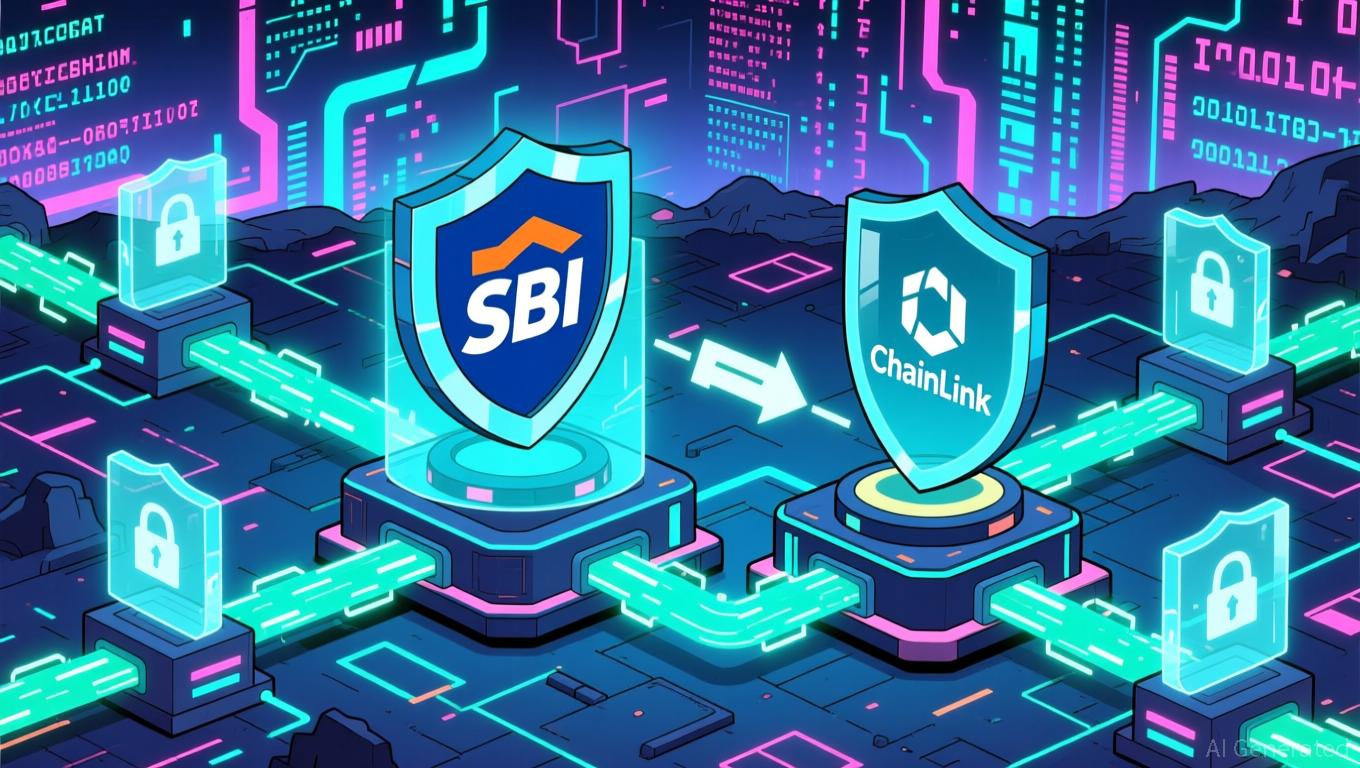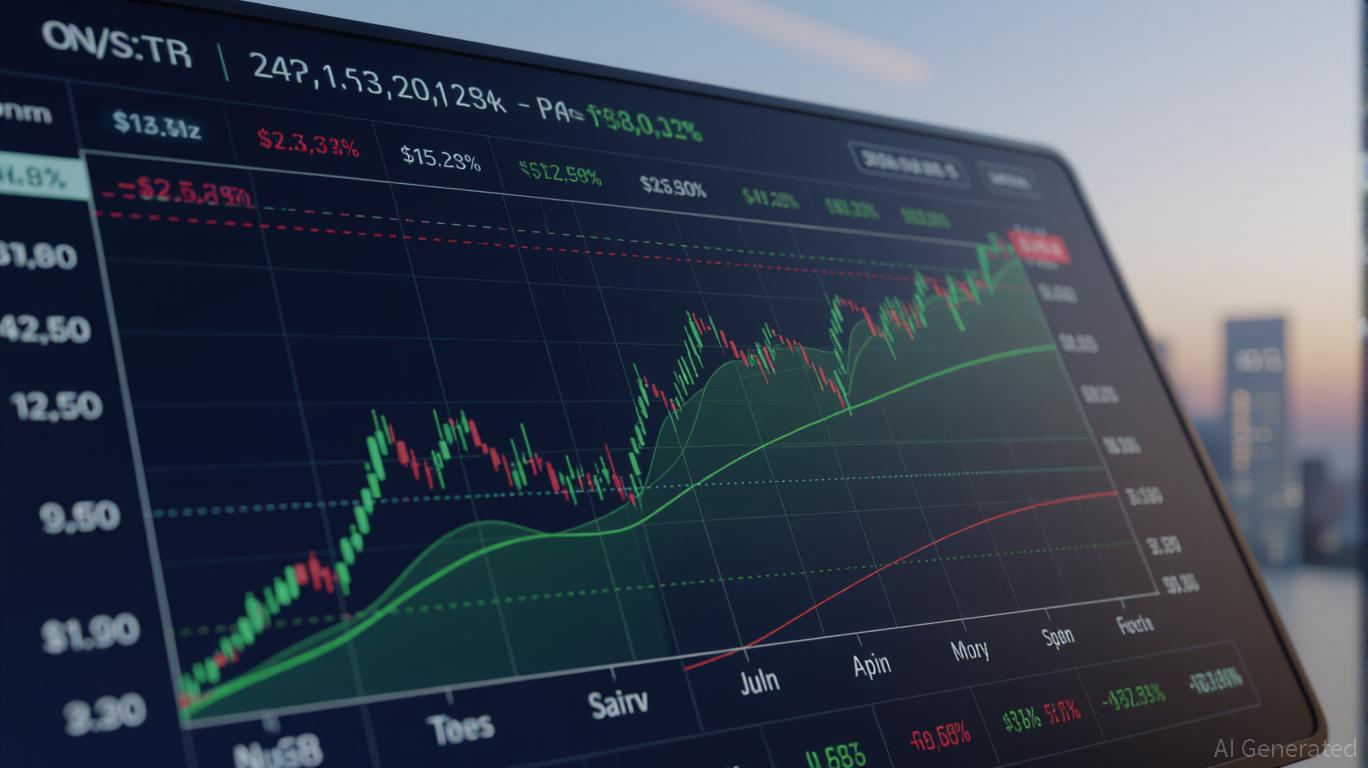SBI and Chainlink Address Regulatory Challenges in International Token Transfers
- SBI Digital Markets partners with Chainlink for cross-chain tokenized asset transfers using CCIP. - The collaboration aims to ensure compliance and privacy in global digital asset transactions. - Chainlink's ACE and infrastructure upgrades support SBI's ecosystem for institutional tokenization. - This aligns with growing TradFi adoption of blockchain for efficiency and regulatory compliance. - The partnership could accelerate tokenized asset adoption in Asia and Europe with mature frameworks.
SBI Digital Markets, the digital asset division of Japan’s SBI Group, has strengthened its alliance with
By integrating CCIP, SBI Digital Markets will be able to conduct private transactions that conceal sensitive information such as trading volumes and counterparties from public access, as detailed in the BeInCrypto report.

This collaboration builds upon earlier joint efforts between SBI and Chainlink, including their participation in Singapore’s Project Guardian with UBS Asset Management. That project illustrated how blockchain automation can simplify fund management tasks traditionally performed by administrators and transfer agents, as previously covered by BeInCrypto. The companies are now expanding their focus to institutional-level tokenization, reflecting the rising interest in regulated digital securities across Asia and Europe.
Recent upgrades to Chainlink’s infrastructure further enhance the partnership. In November 2025, Chainlink introduced the Chainlink Runtime Environment (CRE), an orchestration layer that integrates its core offerings, such as Oracles, CCIP, and Proof of Reserve. Looking ahead, Chainlink Confidential Compute, expected to launch in 2026, will deliver privacy-focused solutions for enterprise applications, as reported by BeInCrypto. These innovations reinforce Chainlink’s role as a foundational infrastructure provider for major financial organizations, including SWIFT, Mastercard, and Euroclear.
This partnership highlights a growing movement among traditional financial institutions (TradFi) to adopt blockchain technology for greater efficiency and regulatory compliance. SBI’s initiative follows similar moves by other companies, such as the collaboration between HashKey Group and Kraken to drive institutional adoption of tokenized assets. By leveraging HashKey’s regulatory knowledge and Kraken’s global liquidity platform, the partnership seeks to unlock the vast potential of tokenized real-world assets (RWAs) and promote interoperability between digital and conventional financial systems, as noted in
For both SBI and Chainlink, this partnership signals a strategic response to the changing demands of institutional investors. As tokenization becomes more prevalent, ensuring regulatory compliance, privacy, and cross-chain connectivity is increasingly important. With Chainlink’s technology and SBI’s market influence, the collaboration could accelerate the mainstream adoption of tokenized assets, especially in markets where regulatory standards are evolving.
Disclaimer: The content of this article solely reflects the author's opinion and does not represent the platform in any capacity. This article is not intended to serve as a reference for making investment decisions.
You may also like
Zcash Halving and Its Impact on the Privacy Coin Market
- Zcash's November 2024 halving cut block rewards by 50%, reducing annual inflation from 12.5% to 3.5% by 2025. - This supply shock drove a 92% price surge, boosting Zcash's market cap to $5 billion by late 2025. - Institutional adoption and privacy upgrades, including zk-SNARKs and multisig tools, shifted investor sentiment toward strategic interest. - Future halvings and regulatory risks will test Zcash's ability to balance scarcity with innovation in evolving markets.

Zcash (ZEC) Value Rises as Interest in Privacy Coins Grows Again
- Zcash (ZEC) surged 1,172% in 2025, reaching $9.4B market cap as institutional adoption and privacy-focused upgrades drove its rise to 14th-largest cryptocurrency. - Institutional backing, including $137M from Grayscale and Arthur Hayes’ endorsement, highlights ZEC’s appeal as a privacy-centric alternative to Bitcoin . - Regulatory clarity from U.S. laws and GDPR-compliant innovations like Kachina VM in Midnight ecosystem bolster ZEC’s institutional viability. - Technical upgrades like ephemeral addresses

ICP Value Jumps 30% Following Significant Network Update and Growing Interest from Institutions
- ICP's 30% price surge follows a November 2025 network upgrade introducing Caffeine, an AI tool for Web3 development, boosting on-chain AI integration. - Institutional adoption grows via partnerships like HashKey-Kraken, while ICP's DeFi TVL hit $237B, though DApp engagement fell 22.4% in Q3 2025. - Experts highlight Caffeine's accessibility benefits but caution over missing technical upgrades in scalability and storage, raising questions about long-term viability. - Competition from Ethereum and Solana ,

Is Wall Street starting to doubt the potential of AI?